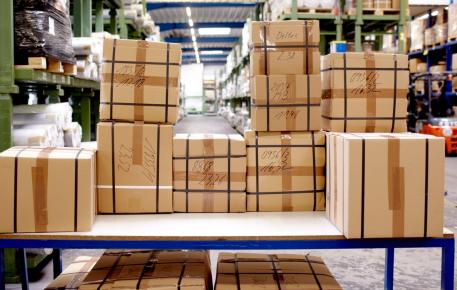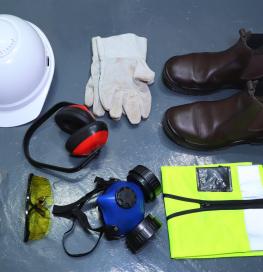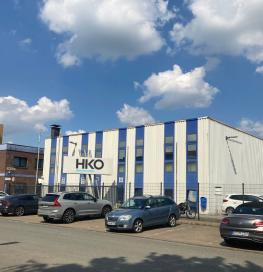At Saint-Gobain, and therefore also at HKO, sustainability is a central component of our business orientation. For us, sustainability is at the core of our actions, whether in the office, in production or in the properties of our products and processes. Our roadmap is divided into four interconnected pillars:
Sustainability is at the core of what we do
Our sustainable offer
Our aim is to offer our customers more sustainable solutions. Not only should the products themselves be more sustainable, they should also contribute to sustainability throughout their product life.
We promote a culture of close collaboration between our teams in research and development, production, purchasing and sales. In this way, we ensure that we not only manufacture high-quality products, but also act sustainably for and with our customers.
With the help of LCA (Life-Cycle-Analysis) and EPD (Environmental Product Declaration), we want to create more transparency about the environmental impact of our products throughout their life cycle.

Some of our products contribute to the preservation of health and materials throughout their lifecycle by serving, for example, as passive fire protection for people and surfaces/equipment against fire-related injuries/damages.
Due to their robust product composition, some of our products can be applied in a single layer with the same effectiveness instead of multiple layers, achieving higher material efficiency and reduced resource consumption.
Sustainability starts with a mindset
All employees are involved in the journey towards sustainability. We promote awareness and engagement of our employees for sustainability and actively involve them in the implementation of sustainability goals.
In workshops, we raise awareness among our colleagues from all areas about the challenges of climate change and motivate them to contribute sustainability ideas. For example, by the end of 2025, more than 80% of all our employees will participate in the 'Climate Fresk' to educate about climate change and encourage employees to make active changes and contribute ideas.
In all areas, the health and safety of employees, temporary workers, subcontractors, as well as external stakeholders, customers, and suppliers at our locations come first.
Regularly, work areas are evaluated, and health offers are made: back school, doctor visits, vaccination offers.
At our regular EHS Days (Environment, Health & Safety), all employees are sensitized to various topics from the EHS area. For example, the handling of spill kits (removal of hazardous liquids) is trained, or the correct waste separation is refreshed in their memories.
Sustainable production
As a manufacturing company, it is particularly important for us to reduce the ecological footprint of our three plants. At our production sites, the consumption of energy, water, and materials is consistently measured. Locally, we implement projects to reduce resource usage.
When acquiring new equipment, we examine whether the use of fossil fuels can be substituted with more sustainable solutions. For example, the dryer in our foulardizing plant is powered by electricity instead of gas. The majority of our electricity consumption is covered by green electricity.
We have an internal recycling facility that allows us to reuse a large portion of the material waste generated during production back into the process. This reduces our waste volume as well as the amount of raw fibers used.
At the Oberhausen site, we collect rainwater to use for machine cleaning tasks, thereby reducing fresh water consumption.
Sustainable supply chain
Sustainability must be considered holistically. Our strategy is therefore to increase the sustainability of our supply chain through various actions.
Our buyers are trained in responsible purchasing. Through responsible purchasing, we aim to reduce the carbon footprint of the raw materials purchased and their transportation.
Whenever possible, we use reusable, recyclable, and/or recycled materials.
For the purchase of wooden pallets, our 'Timber Policy' applies, which is based on three main goals: biodiversity and protection of local populations, compliance with the European FLEGT regulation, and the certified or responsible promotion of managed wood.




